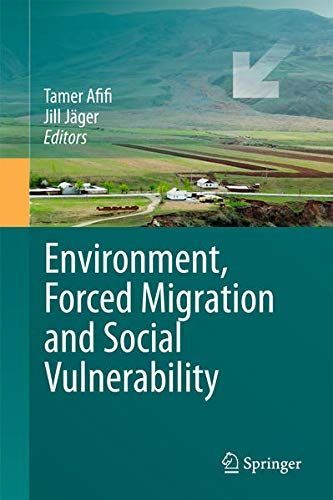
Environment, Forced Migration and Social Vulnerability
This book is one of the outputs of the conference on ‘Environmental Change, Forced Migration, and Social Vulnerability’ (EFMSV) held in Bonn in October 2008. Migration is one of the oldest adaptation measures of humanity. Indeed, without migration the multitude of civilizations and interactions between them – peaceful and otherwise – would be hard to imagine. The United Nations (UN)-led global dialogue on migration is a clear sign that governments and the specialized UN agencies and bodies have recognized the need to view, govern, manage, and facilitate migration; to mitigate its negative effects; and to capitalize on the positive ones. It is a common expectation among experts that environmentally induced migration will further increase in the decades to come. Hence, next to the political, economic, ethnic, social, financial, humanitarian, and security aspects of migration, the environmental component should urgently be considered in the ongoing international dialogue on migration. This need is also a challenge. Without appropriate scientific knowledge, assessment, definitions, and classifications, the intergovernmental frameworks would not be able to deal with these complex phenomena. The Five-Pronged-Approach as formulated by the United Nations University (UNU) may serve as a framework to identify the additional dimensions of this challenge next to – and actually simultaneously with – the scientific one.